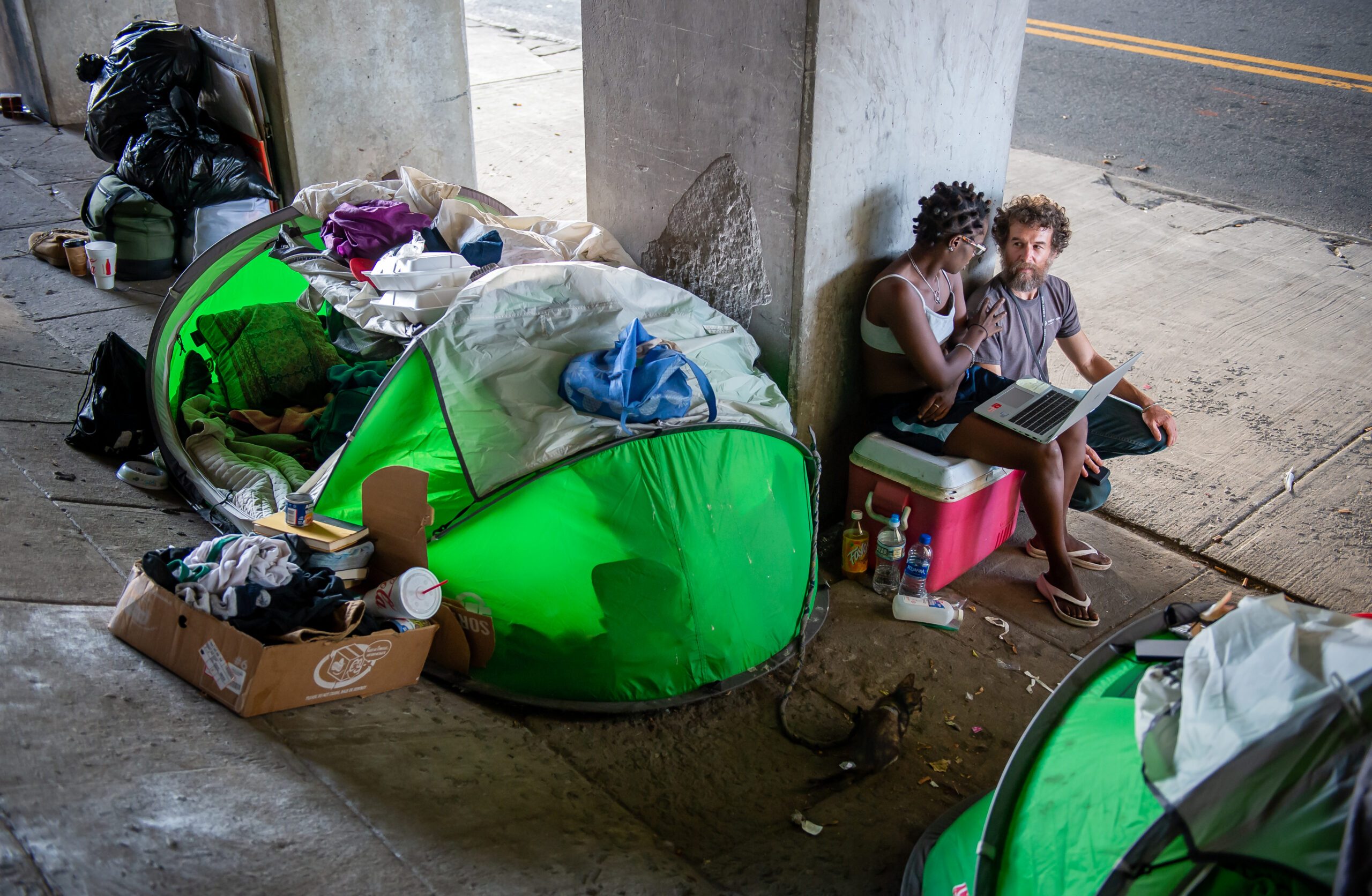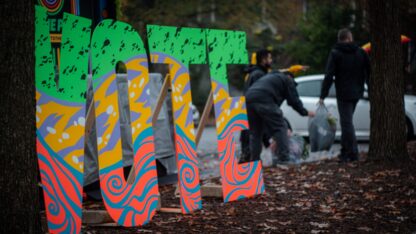Atlanta Report Finds Hundreds Sleep Outside As Shelter Beds Sit Empty

Social worker Matthew Reed, right, is shown last year checking on a woman who lived in a homeless encampment under an I-20 bridge in downtown Atlanta. The results of an annual count show a nearly 25% increase in the number of people who are unsheltered since last year, even though shelter beds stay empty.
BITA HONARVAR / Special To WABE
Updated Friday at 9:01 a.m.
The latest census of Atlanta’s homeless shows hundreds of people have been sleeping outside, even as shelter beds stay empty.
The annual Point in Time count took place one night in January. Volunteers surveyed the city for anyone staying in shelters, under bridges or alongside buildings.
The results of that effort, which the city released Wednesday, show a nearly 25% increase in the number of people who are unsheltered since last year. That translates into nearly a thousand people spending the night outdoors.
And yet, on that same night, the city’s shelter system had more than 600 beds available indoors in either emergency or transitional housing.
Cathryn Marchman, executive director of Partners for Home and leader of the city’s strategy on homelessness, said volunteers asked people why they weren’t in shelters. Their answer was that current providers weren’t accessible.
“Folks, at least at a minimum, have the perception that the beds are not available or that the rules are too high,” she said.
Shelters in Atlanta have different standards people must meet to qualify for a bed. Some require state identification. Others have age minimums or limits.
Marchman said the city encourages providers to reduce barriers to shelter when it makes funding available. Ultimately, shelters are privately run.
Atlanta’s largest low-barrier shelter, Peachtree-Pine, which could hold hundreds, closed in 2017. Afterward, the city’s homeless network opened 100 new beds for men at Jefferson Place and another 40 beds for women at the Donna Center.
The overall number of people the city considers homeless stayed flat in this year’s count. The data does not reflect any possible changes in the city’s homeless population due to the pandemic.
Correction: This story has been corrected to show that Peachtree-Pine shelter closed in 2017, not 2019.








